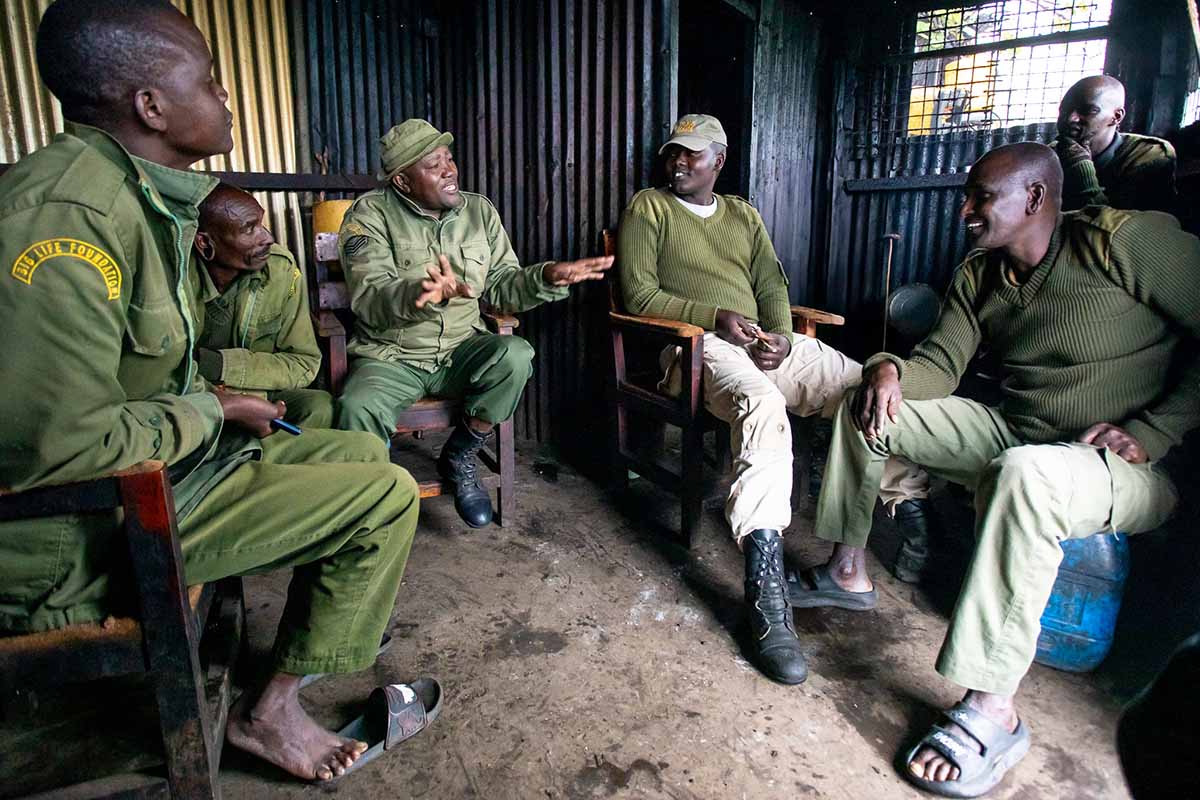At dusk, rangers unwind, tell jokes, and recount stories after a long day on patrol.
Of all Big Life’s rangers, one is renowned as a master storyteller, commanding keen audiences wherever he goes: Sergeant Nicholas Mutinda Ndivo, the poacher-turned-ranger. One of his favorites goes as follows:
When Big Life’s anti-poaching program first started in the 1990s, vehicles were few. Ranger units often had to carry their kit and rations on field operations, and the heavy tent poles needed for mobile camps.
A donation made it possible for these units to receive an exciting new technological bray-kthrough: donkeys. These trusty steeds would accompany the rangers, carrying equipment on their long patrols in remote hilly areas.
But Sergeant Mutinda remembers that this wasn’t without the occasional hiccup. He says, “We were hiding near a poacher’s camp in the Chyulu Hills, waiting to ambush some bushmeat poachers. We couldn’t leave our donkey behind overnight as it would be eaten by hyenas, so it had to come with us, even on ambushes.
It was almost dawn, and our donkey was about to start braying. This would have exposed us to the poachers, so we had to jump on it, covering its mouth with our hands. Donkeys are stubborn, and it tried to call four times. Luckily, we managed to keep the donkey quiet and arrested two poachers later that morning.”
Back then, even small improvements like donkeys made a massive difference.
Today, equipment like Land Cruisers, camera traps, and GPS devices have radically improved our operations, but their constant use in tough conditions means they often need to be replaced at a high cost.
Help support our rangers with the equipment they need to protect Amboseli’s wildlife. Donate now.
Photo: Joshua Clay

